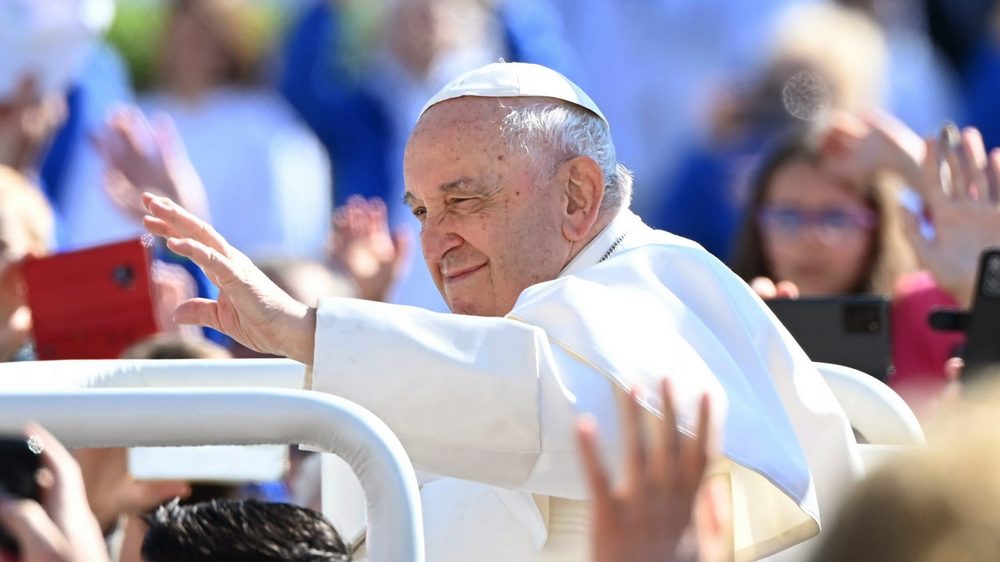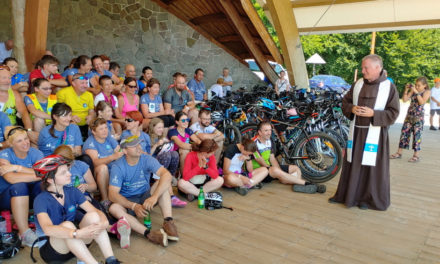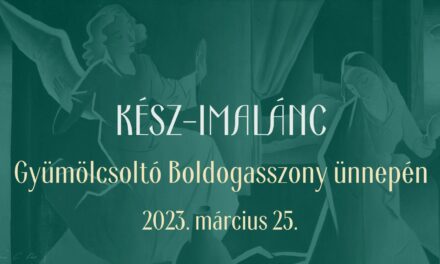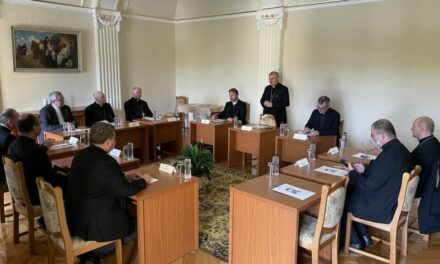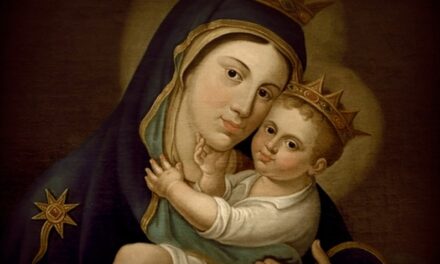A collection of the speeches delivered by Pope Francis during his visit to Hungary at the end of April has also been published.
On behalf of the Hungarian Catholic Bishops' Conference, the Magyar Kurír recently published a collection of Pope Francis' speeches in Budapest at the end of April. In the publication, we can read the seven major speeches of the visit to the country: the one delivered in the Carmelite monastery, in which he addressed state leaders, representatives of social life and the diplomatic corps, the one delivered in the Szent István Basilica, which he delivered in a meeting with the bishops, priests, deacons, monks, student priests and pastoral staff, in the St. Elizabeth Church in Árpád-házi, Rózsák terei which he addressed to the refugees and the needy, we can also read his speech that had perhaps the greatest impact, which was listened to by nearly twenty thousand young people in the Papp László Budapest Sports Arena, as well as two speeches that he addressed to us at Kossuth Square: the homily of the Holy Mass and the reflection given after the Regina Caeli prayer.
Just like the visit, the volume (which proceeds in chronological order) ends with a speech given at the Faculty of Information Technology and Bionics of Pázmány Péter Catholic University, which the Holy Father addressed to representatives of university and cultural life.
Of course, it does not include the thoughts he expressed during his private visits, i.e. to the Roman Catholic Children's Home for the Blind László Batthyány, or when he met his fellow religious, the Hungarian Jesuits, during the apostolic nunciature.
The great advantage of the publication is that it is really available to anyone, as the booklet costs only HUF 250 (in fact, readers of the Új Ember weekly published by the publisher received it as a gift along with their paper a few weeks ago).
Behind the completely simple, stripped-down design, the real value lies in the Pope's words, which elegantly, yet decisively sent a message to the Hungarian Church and the Hungarian people as a whole. In fact, sometimes even further.
For example, it was more than remarkable to hear the following in the basilica at a time when the German church, which embraces the demands of the radical left, was on the verge of separation from Rome, and the progressive Christians in Hungary, who were enthusiastically following the German path, began to demand similar changes:
"Don't let ideologies in! The life of faith, the behavior of believers cannot be reduced to ideology: this is from Satan!" The appeals of other speeches also fit this idea, for example the one when the Holy Father is
he warned against the "despicable path of ideological colonialism", "which erases differences - as in the case of the so-called gender culture".
He cited the basic law of our country several times, referring to its Christian beliefs and presenting several of its wordings to the world as an example. He was critical of the European integration process, which seems to be slipping astray, whose fathers not only professed Christian values, but also lived them, and which should function in such a way as not to suppress the independence and specific values of its members, while at the same time drawing attention to the dangers of populism.
He encouraged Christians to live in Christ (the motto of the papal visit was: Christ is our future): "With Christ and in Christ! Nothing apart from Christ, nothing away from Christ!” Warned,
"Let us return to Christ, who is the future, so that we do not fall into the trap of the changing winds of worldliness! This would be the worst thing that could happen to the Church: a secular Church."
But Pope Francis also regularly spoke in favor of peace. In the Carmelite monastery, for example, he expressed his concern:
"It seems that we have to watch as the choir singing the dream of peace is sadly sacrificed while the soloists of war make their way", as well as: "...politics instead of solving problems rather inflames emotions, forgetting the maturity achieved after the horrors of war, regressing into a kind of wartime infantilism".
Among his many other comments, he made us proud when he referred to Budapest as the protagonist of the present and future.
What is a bit sad about the publication is its complete simplicity. In the midst of the economic environment and the significantly skyrocketing prices of the printing industry, it is of course understandable that the publisher sought to produce a product that would become widely available,
however, in honor of such a hugely important papal visit, it would still have been appropriate to come up with a better publication.
It is worth comparing, for example, the booklet that has just been published with the volume that appeared on bookstore shelves after Pope Francis came to our country for the closing mass of the International Eucharistic Congress and then traveled to Slovakia on a country visit. The speeches given at that time in Budapest and Slovakia were collected in a beautiful book with remarkable graphics, forewords and photographs, collected in our hands (and in our hearts), and the volume was appropriately given a literary title (Live in the freedom of the Gospel!), and the subtitle made it clear what kind of reading material we will find in it.
collection of speeches from the visit to Hungary "calls" with a much more prosaic title: Speeches delivered by His Holiness Pope Francis during his apostolic visit to Hungary April 28-30, 2023. If the basic aspect was that as many people as possible could get their hands on it, it would have been considered to produce two publications right away: an inexpensive booklet and a nice commemorative book for those who (probably a good number) would have been willing to sacrifice several thousand forints for it. After all, we have deep feelings and beautiful memories attached to this papal visit (also). And what has been said is worth recalling from time to time.
Featured image: MTI/Zoltán Máthé

